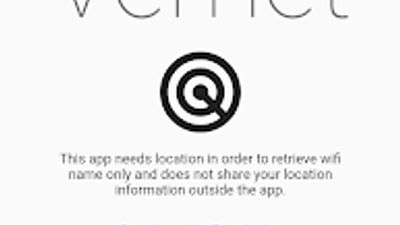
- #Open source network scanner install#
- #Open source network scanner full#
- #Open source network scanner software#
- #Open source network scanner license#
- #Open source network scanner series#
x, –autox Automatically detect if X is in use –versioncheck Check for latest version of program V, –version Display the version number, then exit –vl, –verbose-logging Use verbose logging (on by default) –tmpdir Use the specified temporary directory –syslog Log the check start and finish times to syslog –summary Show the summary of system check result –sk, –skip-keypress Don’t wait for a keypress after each test r, –rootdir Use the specified root directory –rwo, –report-warnings-only Show only warning messages –propupd … or just for the specified entries –display-logfile Display the logfile at the end –dbdir Use the specified database directory –configfile Use the specified configuration file –cs2, –color-set2 Use the second color set for output

C, –config-check Check the configuration file(s), then exit –bindir … Use the specified command directories –append-log Append to the logfile, do not overwrite Here are other useful options for rkhunter as shown in the -h flag: To start the scanning in your file system, type the command:Īnd if you want check for updates, issue the command:Īfter rkhunter has finished scanning your file system, all the results are logged at /var/log/rkhunter.log.
#Open source network scanner install#
To install rkhunter on a Ubuntu or Debian based distro, you can just type : This tool scans for rootkits, backdoors and local exploits by running tests like: MD5 hash compare, look for default files used by rootkits, wrong file permissions for binaries, look for suspected strings in LKM and KLD modules, look for hidden files, and optional scan within plaintext and binary files.
#Open source network scanner license#
Rootkit hunter or rkhunter is an Open Source General Public License (GPL) Rootkit Scanner similar to chkrootkit which is also pre-installed in BackTrack 5 under Anti-Virus Forensic Tools. p dir1:dir2:dirN path for the external commands used by chkrootkit e exclude known false positive files/dirs, quoted, space separated, READ WARNING IN README Here are other options you can use after issuing the command sudo chkrootkit -h: To start checking for possible rootkits and backdoors in your system, type the command: To install chkrootkit on a Ubuntu or Debian based distro, you can just type :

This tool is pre-installed in BackTrack 5 under Anti-Virus Forensic Tools. There are also fun things to try, hardware, free programming books and tutorials, and much more.Chkrootkit or Check Rootkit is a common open source program or tool used for scanning rootkits, botnets, malwares, etc.
#Open source network scanner software#
There are hundreds of in-depth reviews, open source alternatives to proprietary software from large corporations like Google, Microsoft, Apple, Adobe, IBM, Cisco, Oracle, and Autodesk.
#Open source network scanner series#
The software collection forms part of our series of informative articles for Linux enthusiasts. Our curated compilation covers all categories of software. Read our complete collection of recommended free and open source software. The Spacewalk project was discontinued on May 31 2020. Robust solution for datacenter and server room asset managementĭata Center Inventory Management applicationĬlient management system to manage heterogeneous environments
#Open source network scanner full#
Simple yet full featured Asset Management, DCIM and CMDB For each title we have compiled its own portal page, a full description with an in-depth analysis of its features, together with links to relevant resources. Let’s explore the 9 network inventory management solutions at hand. To provide an insight into the quality of software that is available, we have compiled a list of 9 high quality network inventory solutions for Linux. With increased efficiency comes a more accurate overview of the network. Another benefit offered by using this type of software is that service provisioning is both faster and more accurate. With an up-to-date network inventory there is the basis for optimizing devices to fully exhaust their potential and cost-effectively meet your needs.

Network inventory management software reduces time and costs by helping administrators locate information for every day operational issues. This type of software puts to pasture the antiquated way of tracking network inventory, dispensing with the horrid spreadsheet or word processing document. With this software the system or network administrator will know what is on their network, how it is configured, and when it changes.

Network inventory management solutions offer reporting functions, and process modeling to automate work-intensive, back-office processes. Network Inventory Management collates all network infrastructure data and keeps it up to date, helping to streamline processes that improve operational performance.


 0 kommentar(er)
0 kommentar(er)
